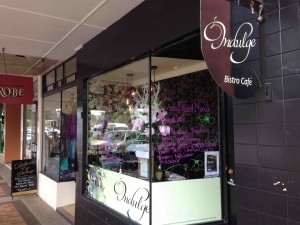Periodically? How about monthly. A table of egg-based Salmonella outbreaks is available at https://barfblog.com/wp-content/uploads/2014/12/raw-egg-related-outbreaks-australia-12-8-14.xlsx
 In Australia, the egg industry is periodically implicated during outbreaks of Salmonella food poisoning. Salmonella enterica serovar Typhimurium and other nontyphoidal Salmonella spp., in particular, are a major concern for Australian public health.
In Australia, the egg industry is periodically implicated during outbreaks of Salmonella food poisoning. Salmonella enterica serovar Typhimurium and other nontyphoidal Salmonella spp., in particular, are a major concern for Australian public health.
Several definitive types of Salmonella Typhimurium strains, but primarily Salmonella Typhimurium definitive type 9 (DT9), have been frequently reported during egg-related food poisoning outbreaks in Australia. The aim of the present study was to generate a pathogenicity profile of nontyphoidal Salmonella isolates obtained from Australian egg farms.
To achieve this, we assessed the capacity of Salmonella isolates to cause gastrointestinal disease using both in vitro and in vivo model systems. Data from in vitro experiments demonstrated that the invasion capacity of Salmonella serovars cultured to stationary phase (liquid phase) in LB medium was between 90- and 300-fold higher than bacterial suspensions in normal saline (cultured in solid phase). During the in vivo infection trial, clinical signs of infection and mortality were observed only for mice infected with either 103 or 105 CFU of S. Typhimurium DT9. No mortality was observed for mice infected with Salmonella serovars with medium or low invasive capacity in Caco-2 cells.
Pathogenicity gene profiles were also generated for all serovars included in this study. The majority of serovars tested were positive for selected virulence genes. No relationship between the presence or absence of virulence genes by PCR and either in vitro invasive capacity or in vivo pathogenicity was detected. Our data expand the knowledge of strain-to-strain variation in the pathogenicity of Australian egg industry-related Salmonella spp.



